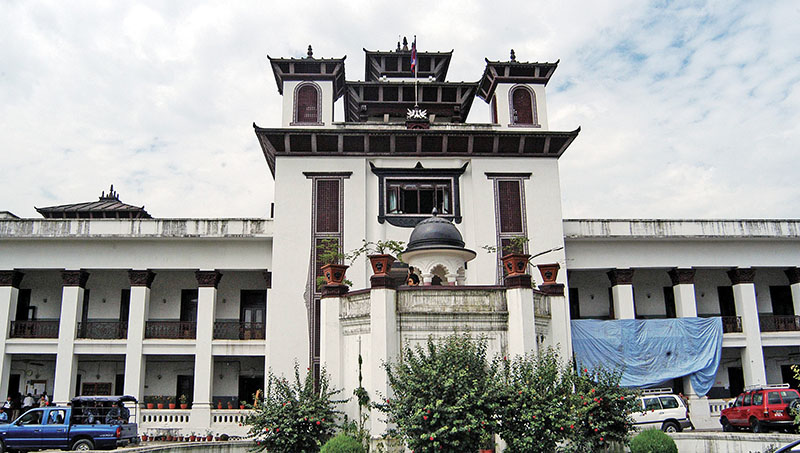EC needs 25 days to hold NA elections
Kathmandu, December 14
The Election Commission stated today that it would take at least three weeks after identifying voters to hold National Assembly elections.
Chiefs and deputy chiefs of local levels and elected representatives of provinces are eligible to vote in the National Assembly election.
According to EC Commissioner Narendra Dahal, counting of votes for provincial and parliamentary proportional representation elections will be completed by tomorrow. The EC will need three more days to declare the number of seats political parties have won under the PR system.
The poll panel will ask the parties to submit the final list of candidates from among the names they had submitted earlier. The EC will then ask the parties to correct mistakes in the list, if any, before publishing the names of winners and submitting the report to the president.
The poll panel has to submit the names of candidates who won provincial FPTP and PR polls to the governors of seven provinces who will administer the oath of office and secrecy to the elected provincial representatives.
EC Information Officer Surya Prasad Aryal said the poll panel had to complete all electoral procedures for the National Assembly election as in other elections. He said the EC would appoint chief returning officers for seven provinces, establish their offices, ask the parties to file nominations, publish names of candidates and give them time to launch poll campaign, which would take at least three weeks.
Aryal said the ordinance regarding the National Assembly elections submitted by the government to the president should be passed before the process of holding elections for the upper house could begin.
He said NA polls would be held in seven provinces and polling centres could be established in several districts to facilitate voting.
Each province will elect eight upper house members and the president will nominate three members on the recommendation of the government. Of the eight upper house members elected by each province, at least three should be women, one should be from the Dalit community and one from minorities or a person with disability.






